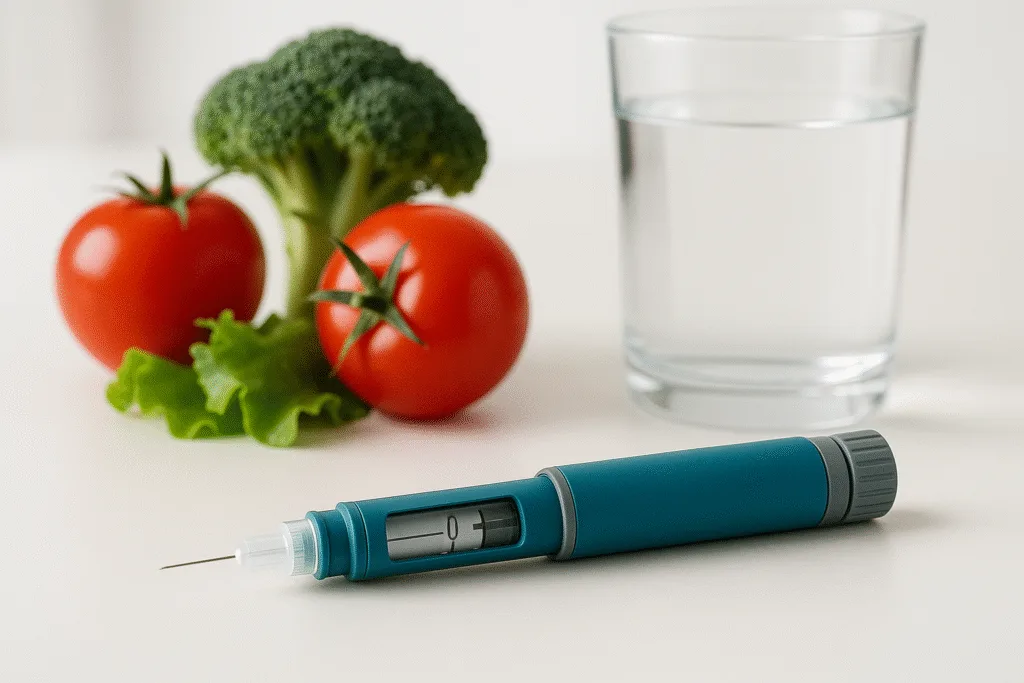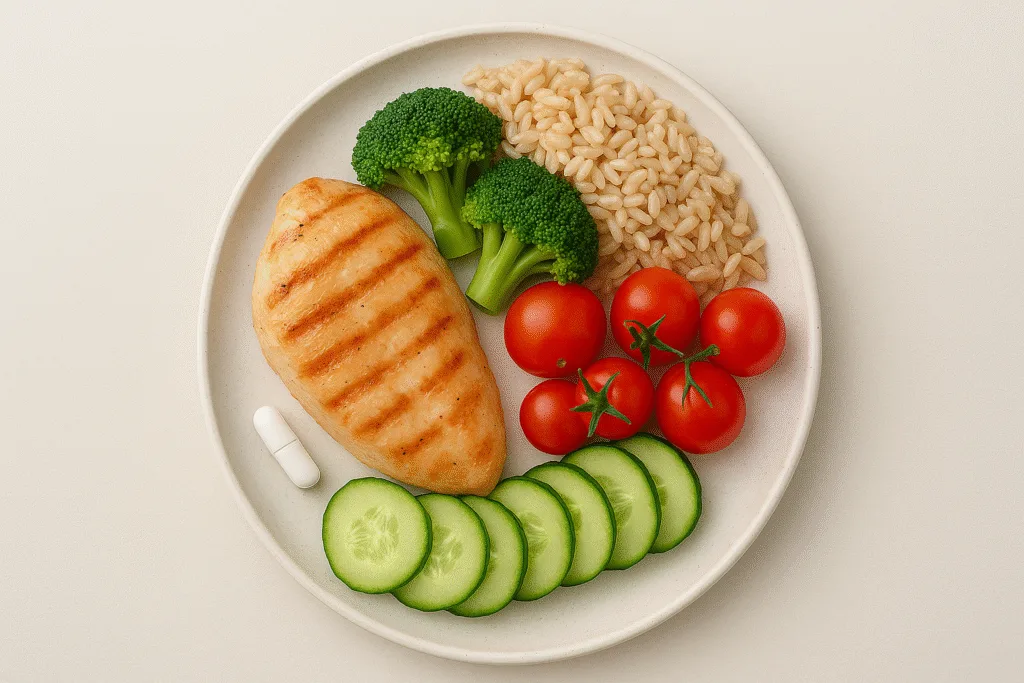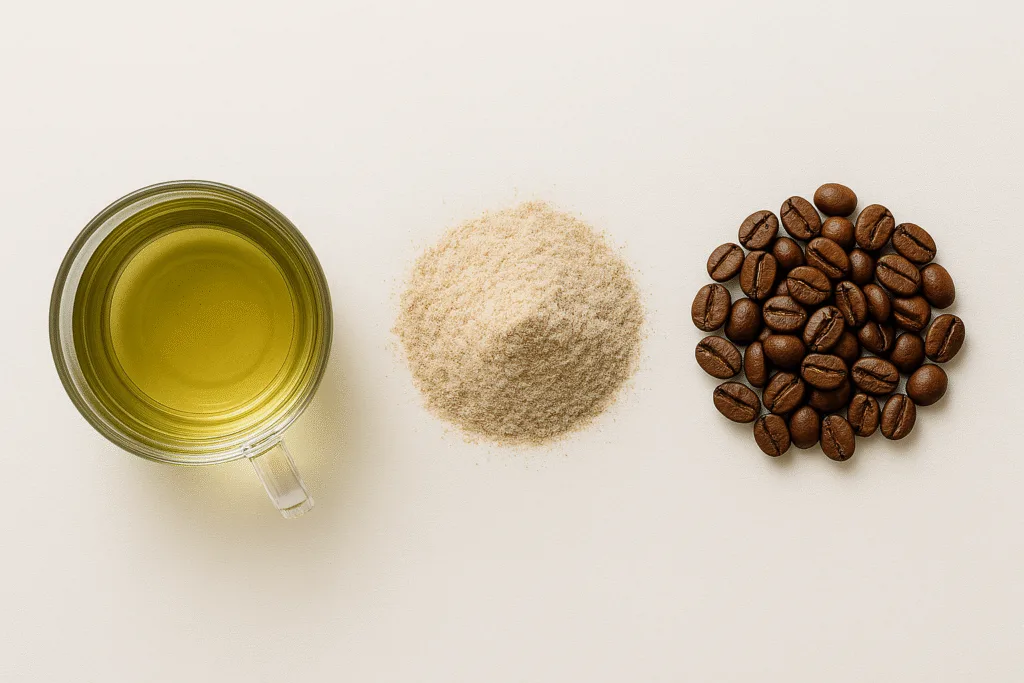Introduction
Weight loss is hard. Millions of people try diets, workouts, and supplements every year. Yet, obesity rates continue to climb.
That’s why weight loss medication is booming. In 2025, more people than ever are searching for “safe medicine for weight loss without side effects.”
The truth? No medicine is 100% side effect–free. But some are proven effective, relatively safe, and supported by clinical research. Others are overhyped or even dangerous.
In this guide, you’ll learn:
- Which weight loss medicines work in 2025.
- What the science says about their safety.
- How to combine medication with diet, exercise, and lifestyle for maximum results.
- Alternatives like meal prep strategies, balanced diet plates, and fasting workouts.
If you want a clear breakdown of weight loss medicines without the hype, this is your starting point.
1. GLP-1 Receptor Agonists (Semaglutide, Liraglutide)

What They Are
GLP-1 receptor agonists are medications originally developed for type 2 diabetes. They work by mimicking a natural hormone that regulates appetite and blood sugar.
Common names include:
- Semaglutide (Wegovy, Ozempic)
- Liraglutide (Saxenda)
Why They Work
- Slow stomach emptying → you feel full longer.
- Reduce appetite and cravings.
- Improve blood sugar control.
What the Research Says
- A 2021 New England Journal of Medicine trial showed patients on semaglutide lost an average of 14.9% of body weight in 68 weeks.
- Studies confirm liraglutide users lose 5–10% of body weight over 1 year.
Side Effects
- Most common: nausea, vomiting, constipation.
- Usually mild and decrease over time.
- Serious risks are rare but include pancreatitis.
Are They “Without Side Effects”?
No medication is completely side effect–free. But compared to older weight loss drugs, GLP-1s have a strong safety record when prescribed under medical supervision.
Pro Tips
- Always use under a doctor’s care.
- Combine with a sustainable eating plan.
- Add Mediterranean diet basics for long-term health.
Who Should Consider This
- Adults with BMI ≥30, or ≥27 with obesity-related conditions.
- People who have tried diet and exercise without success.
2. Orlistat (Alli, Xenical)

What It Is
Orlistat is one of the oldest prescription weight loss medicines still in use today. It works differently than appetite suppressants or GLP-1 drugs.
Instead of changing hunger hormones, it blocks your body from absorbing about 25–30% of the fat you eat.
Brand names:
- Xenical (prescription strength, 120 mg)
- Alli (over-the-counter, 60 mg)
Why It Works
- Creates a calorie deficit without changing what you eat (though diet quality matters).
- Works especially well if your diet is naturally higher in fat.
- Helps lower LDL cholesterol while aiding weight loss.
What the Research Says
- A 2016 International Journal of Obesity review found that people using orlistat lost 5–10% of body weight over a year compared to placebo.
- Studies also show improvements in blood pressure and cholesterol.
Side Effects
Here’s the catch: because orlistat blocks fat absorption, that fat has to go somewhere.
- Oily stools
- Gas with discharge
- Urgent bowel movements
These are the main reasons many people stop taking it.
The good news? Side effects are manageable when you eat a low-fat diet (less than 30% of calories from fat).
Are There Serious Risks?
Rare cases of liver injury have been reported, but the FDA considers orlistat safe for long-term use when monitored.
Pro Tips
- Stick to lean protein, vegetables, and whole grains.
- Avoid fried and greasy foods to reduce side effects.
- Support digestion with Clean Balanced Meal Plates.
Who Should Consider This
- People who prefer oral medication over injections.
- Those who eat higher-fat diets and need calorie control.
- Individuals who want added cholesterol-lowering benefits.
Internal Boosters
- Use Meal Prep Strategies to keep meals lean and consistent.
- Learn which foods to avoid before workouts: Don’t Do This Before Working Out.
3. Bupropion/Naltrexone (Contrave)

What It Is
Contrave is a combination of two medicines:
- Bupropion: an antidepressant that also reduces appetite and helps control cravings.
- Naltrexone: a drug used for addiction treatment, which influences the brain’s reward system.
Together, they work on brain pathways that regulate hunger and food cravings.
Why It Works
- Reduces hunger signals.
- Cuts cravings for high-calorie, high-sugar foods.
- Supports people who struggle with emotional or binge eating.
What the Research Says
- A 2016 Lancet review found that people on Contrave lost 5–9% of body weight over a year, compared to 1–2% with placebo.
- Another 2021 meta-analysis confirmed its effectiveness for appetite control, though results vary depending on adherence.
Side Effects
Most common:
- Nausea
- Headache
- Constipation
- Dry mouth
More serious risks:
- Can increase blood pressure and heart rate.
- May not be suitable for people with seizure disorders or uncontrolled hypertension.
Are There “No Side Effects”?
Like all medicines, side effects are possible. But compared to older weight loss drugs, Contrave is considered relatively safe when monitored.
Pro Tips
- Take with food to reduce nausea.
- Track your blood pressure regularly.
- Use Power of Consistency to keep results long-term.
Who Should Consider This
- Adults with strong cravings or emotional eating patterns.
- People who didn’t respond well to diet-only interventions.
- Patients cleared by their doctor, especially with no seizure risk.
Internal Boosters
- Pair with Healthy Juices and Smoothies to support micronutrients and fullness.
- Combine with Stay Fit Without Daily Workouts to add calorie burn.
4. Phentermine/Topiramate (Qsymia)

What It Is
Qsymia combines two medications:
- Phentermine: a stimulant that suppresses appetite.
- Topiramate: an anticonvulsant that helps reduce cravings and increases satiety.
Together, they make it easier to eat less and stick to a calorie deficit.
Why It Works
- Reduces appetite.
- Lowers cravings for high-calorie foods.
- Increases satiety, so meals keep you full longer.
What the Research Says
- A 2012 Lancet trial found people using phentermine/topiramate lost 10–12% of body weight over a year, significantly more than placebo.
- Long-term studies confirm weight loss can be sustained for 2+ years with continued use.
Side Effects
Common:
- Tingling in hands/feet
- Dizziness
- Constipation
- Insomnia
More serious risks:
- Can increase heart rate.
- Not safe during pregnancy (risk of birth defects).
- May worsen anxiety or mood disorders.
Are There “No Side Effects”?
No—phentermine is a stimulant, so side effects are more common than with GLP-1s or orlistat. But when carefully monitored, it remains effective for many patients.
Pro Tips
- Take in the morning to avoid insomnia.
- Stay hydrated—dry mouth is common.
- Pair with a Balanced Diet Guide to stabilize energy.
Who Should Consider This
- Adults with BMI ≥30 or ≥27 with obesity-related conditions.
- People who haven’t responded well to diet and exercise alone.
- Those cleared by their doctor with no heart issues or pregnancy risk.
Internal Boosters
- Improve workout recovery with Healthy Juices and Smoothies.
- Support training performance: Don’t Do This Before Working Out.
- Stay motivated long-term: Power of Consistency in Fitness.
5. Herbal and Natural Alternatives

Not everyone wants prescription drugs. Natural supplements are popular because they seem “safe” and “side effect–free.” But here’s the truth: only a handful have solid evidence. Most are hype.
Let’s break it down.
Green Tea Extract (EGCG + Caffeine)
What It Is:
Green tea contains catechins (especially EGCG) plus caffeine, which may boost fat oxidation.
Research:
- A 2020 Journal of Nutritional Biochemistry review found green tea extract produced modest weight loss of 1–3 kg over 12 weeks.
- Works best in combination with exercise.
Side Effects:
- High doses may cause liver issues in rare cases.
- Safer when taken with meals.
Bottom Line: Helps a little, not a magic pill.
Soluble Fiber (Glucomannan, Psyllium)
What It Is:
Natural fibers that expand in the stomach, increase fullness, and improve gut health.
Research:
- A 2017 Obesity Reviews meta-analysis showed glucomannan helped reduce body weight in overweight adults when added to calorie restriction.
- Psyllium supports cholesterol and blood sugar control.
Side Effects:
- Mild bloating and gas.
- Must drink plenty of water to avoid constipation.
Bottom Line: Cheap, safe, effective as a support tool.
Caffeine
What It Is:
A natural stimulant found in coffee, tea, and supplements.
Research:
- Increases energy expenditure by ~100–200 calories per day.
- Improves workout performance.
Side Effects:
- Anxiety, jitters, insomnia in sensitive people.
- Tolerance builds quickly.
Bottom Line: Useful, but not a long-term “fat burner.”
Garcinia Cambogia
What It Is:
Fruit extract claimed to block fat storage.
Research:
- Multiple meta-analyses show no meaningful effect on body weight.
- Popular in the supplement industry, but not supported by good science.
Side Effects:
- Mild digestive discomfort.
- Reports of liver toxicity (rare, but concerning).
Bottom Line: Skip it.
Apple Cider Vinegar
What It Is:
Fermented apple juice, promoted for fat loss.
Research:
- A 2018 Japanese study found ACV led to small weight reductions (1–2 kg) over 12 weeks.
- Likely works by reducing appetite slightly.
Side Effects:
- Tooth enamel erosion.
- Digestive irritation if consumed undiluted.
Bottom Line: Minimal effect. Not worth relying on.
Pro Tips
- Stick to evidence-based natural aids: fiber, caffeine, green tea.
- Avoid hype supplements with weak or risky evidence.
- Remember: no supplement replaces diet and exercise.
Internal Boosters
- Balance nutrition with Clean Meal Plates.
- Improve digestion naturally with Colon Cleanse Juice Recipe.
- Stay consistent with Power of Consistency.
6. The Science of “Safe” Weight Loss Medicine
Why No Drug Is 100% Side Effect–Free
Every medication that changes how your body works has an effect — and a side effect. Weight loss medicines act on the gut, brain, or metabolism. That means they can also affect digestion, mood, or energy.
The key is risk vs reward. A safe medicine isn’t one with zero side effects. It’s one where:
- The benefits outweigh the risks.
- Side effects are manageable.
- Long-term health improves, not worsens.
How Medicines Work in the Body
1. Appetite Regulators (GLP-1s, Contrave, Qsymia)
- Target the brain’s hunger and reward pathways.
- Make you feel full with less food.
- Risks: nausea, headaches, sleep changes.
2. Fat Absorption Blockers (Orlistat)
- Work in the gut to block fat digestion.
- Risks: digestive issues, oily stools.
3. Natural Boosters (Caffeine, Green Tea, Fiber)
- Increase energy burn or fullness.
- Risks: mild stomach discomfort, jitteriness if overused.
What Research Shows
- A 2020 BMJ review found that most FDA-approved drugs led to 5–15% body weight loss over one year, with side effects that were “manageable in most patients.”
- Long-term studies show weight loss medicines reduce the risk of type 2 diabetes, heart disease, and hypertension.
How to Minimize Risks
- Medical Supervision
Never self-prescribe. Always start under a doctor’s guidance. - Start Low, Go Slow
Most side effects (like nausea) improve when doses are increased gradually. - Support with Diet
- Use Meal Prep Strategies to avoid greasy meals that worsen Orlistat side effects.
- Try Balanced Diet Basics to improve nutrient intake while on medication.
- Support with Lifestyle
- Add Stay Fit Without Daily Workouts for daily calorie burn.
- Improve sleep and stress to reduce cravings naturally.
Myth-Busting: “Safe Means Natural”
- Many natural supplements are poorly studied and can be harmful.
- FDA-approved medications undergo years of testing.
- “Natural” does not equal “safe.”
Bottom Line
Safe weight loss medicine doesn’t mean zero side effects. It means the benefits (fat loss, lower disease risk, better quality of life) outweigh the risks. When combined with healthy eating and lifestyle, the risk drops even more.
7. Quick Wins for Safe Medicine Use
Taking weight loss medicine isn’t enough. How you use it makes the difference between success and frustration.
Here are the quick wins to get better results with fewer side effects:
1. Eat Lean, Not Greasy
- If you’re on Orlistat, avoid fried or fatty foods.
- Stick to grilled protein, vegetables, and whole grains.
See: Clean Meal Plates.
2. Start Slow
- With GLP-1s, increase dosage gradually.
- This reduces nausea and improves tolerance.
3. Pair Medicine With Meal Prep
- Don’t “wing it” and hope medicine works.
- Prep meals once a week so you control calories.
See: Meal Prep Strategies.
4. Track Your Body
- Log weight weekly, not daily.
- Track waist measurements — often more accurate than the scale.
- Keep a side-by-side photo journal.
5. Hydrate More
- Medicines like GLP-1s and Orlistat work better when you’re hydrated.
- Aim for 2–3 liters per day.
6. Train Smart
- Medicines reduce appetite, but exercise protects muscle.
- Add strength training 2–3 times per week.
See: Push-Ups Per Day.
7. Sleep = Medicine Multiplier
- Poor sleep increases cravings and hunger.
- Aim for 7–9 hours to make your medication more effective.
8. Check In With Your Doctor
- Don’t skip follow-ups.
- Adjust dosage or switch meds if side effects persist.
9. Watch Emotional Eating
- Medicine won’t fix emotional eating triggers.
- Track when and why cravings happen.
10. Stay Consistent
- Most weight loss comes after 3–6 months of consistent use.
- Pair with habit-building.
See: Power of Consistency.
8. Advanced Hacks to Supercharge Medicine Results
Medicine gives you a head start. But if you combine it with the right strategies, results come faster and last longer. Here’s how to stack the deck in your favor.
1. Zone 2 Cardio for Fat Burning
- Keep heart rate at 60–70% of max.
- 30–45 minutes, 2–3 times per week.
- Works well with GLP-1 drugs, since appetite is already reduced.
Why it matters: Improves fat oxidation, keeps weight off long term.
2. Creatine to Protect Muscle
- Calorie deficits + medicine can lead to muscle loss.
- Creatine helps preserve lean mass and workout performance.
- Safe and well-studied.
See: Creatine: Water Retention vs Muscle Gain.
3. Protein Timing
- Spread protein evenly (25–40 g per meal).
- Supports satiety and recovery.
- Pairs well with appetite suppressants like Contrave.
4. Boost NEAT (Non-Exercise Activity Thermogenesis)
- Walk, take stairs, stand more.
- Add 2,000–3,000 steps daily.
- Medicine makes you eat less, but movement ensures you burn more.
See: Stay Fit Without Working Out Daily.
5. Strength Training to Lock In Results
- Focus on compound lifts (squats, push-ups, rows).
- 2–3 sessions per week.
- Prevents muscle loss, boosts metabolism.
See: Push-Ups Per Day.
6. Stress Management = Appetite Control
- Stress can override medicine’s effects.
- Use breathing, meditation, or journaling.
- Evening walks reduce cravings and help with sleep.
7. Smart Supplement Stack
- Whey protein: Makes hitting targets easier.
- Omega-3s: Support heart health.
- Caffeine: Boosts calorie burn and workout energy.
- Skip “fat burners”—they don’t add much.
8. Build Habit Loops
- Anchor new habits to medicine timing.
- Example: “Take morning dose → drink water → prep lunch.”
- Makes lifestyle changes automatic.
Bottom Line
Medicine is powerful, but it’s not magic. If you layer it with smart training, daily movement, and protein-focused eating, you won’t just lose weight—you’ll keep it off.
9. Frequently Asked Questions
What is the most effective weight loss medicine in 2025?
GLP-1 receptor agonists like semaglutide (Wegovy) are the most effective, with average weight loss of 10–15% of body weight.
Is there a weight loss pill with no side effects?
No. Every medicine has some side effects. The safest are those with mild, manageable effects, like orlistat or GLP-1s under supervision.
Which weight loss medicine is safest long term?
GLP-1 drugs and orlistat have the best long-term safety data. Both also improve markers like blood sugar and cholesterol.
Can I take weight loss medicine without diet or exercise?
Yes, but results will be slower and less sustainable. For best outcomes, combine medication with Meal Prep and Daily Activity.
Do natural supplements work for weight loss?
Some help modestly (fiber, green tea, caffeine). Most, like Garcinia cambogia, don’t work.
How fast can I lose weight with medicine?
Safe weight loss is 0.5–1 kg (1–2 lbs) per week. With GLP-1s, some people lose up to 15% of body weight in a year.
Are weight loss injections better than pills?
Yes, in terms of effectiveness. Injections like semaglutide usually outperform oral options like orlistat or Contrave.
Can I stop medicine after losing weight?
Yes, but weight regain is common unless you keep strong habits. Transition to Clean Balanced Plates and regular activity.
Can weight loss medicine replace exercise?
No. Medicine reduces appetite. Exercise protects muscle, boosts metabolism, and improves long-term results.
Do doctors recommend weight loss medicine?
Yes, for adults with BMI ≥30, or ≥27 with obesity-related conditions. Always consult your doctor before starting.
10. Conclusion
Weight loss medicine in 2025 is more effective than ever. But there’s no “magic pill.”
The most effective medicines are:
- GLP-1 agonists (semaglutide, liraglutide): Best results, proven safe.
- Orlistat: Safe, effective if you manage fat intake.
- Contrave: Good for appetite and cravings.
- Qsymia: Strong results, but stimulant side effects.
- Natural supports: Fiber, caffeine, and green tea offer modest help.
The science is clear:
- No medicine is side effect–free.
- Safe use = medical supervision + gradual dosing.
- Best results come when medicine is combined with diet, exercise, and consistency.
Your next steps:
- Talk to your doctor about the right option.
- Build a sustainable eating plan with Meal Prep Strategies.
- Balance meals with Clean Plates.
- Add activity from Stay Fit Without Working Out Daily.
- Lock in progress with Power of Consistency.
Weight loss medicine works best when you work with it—not against it.
Start small. Stay consistent. Use the tools available.
That’s how you get safe, fast, and lasting results in 2025.

